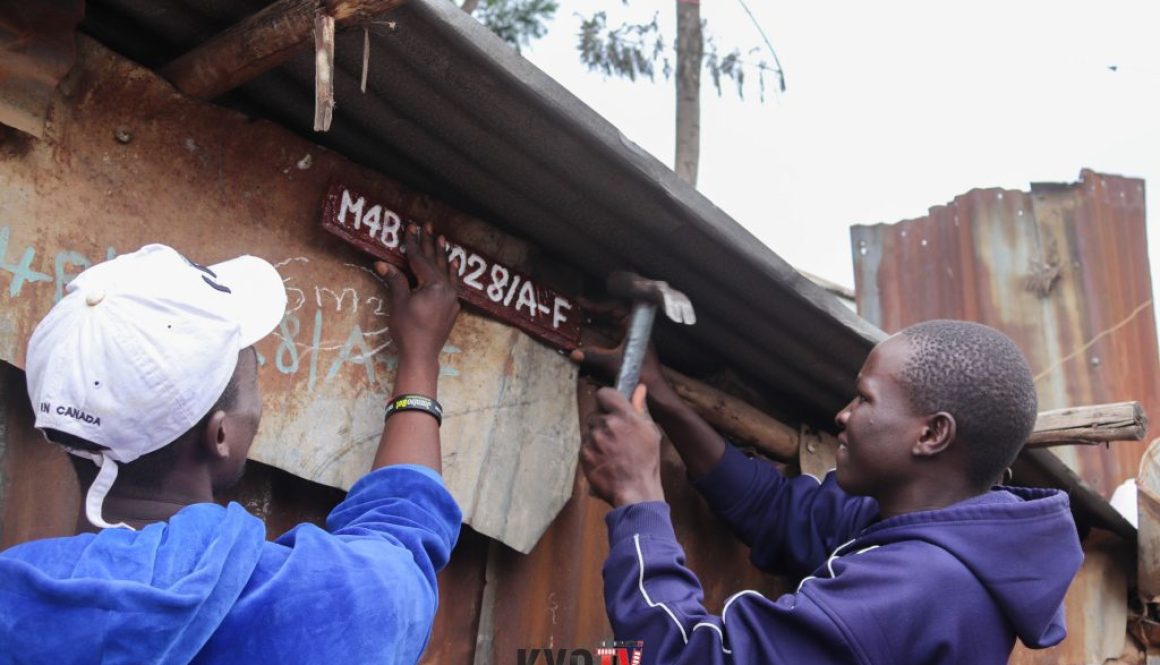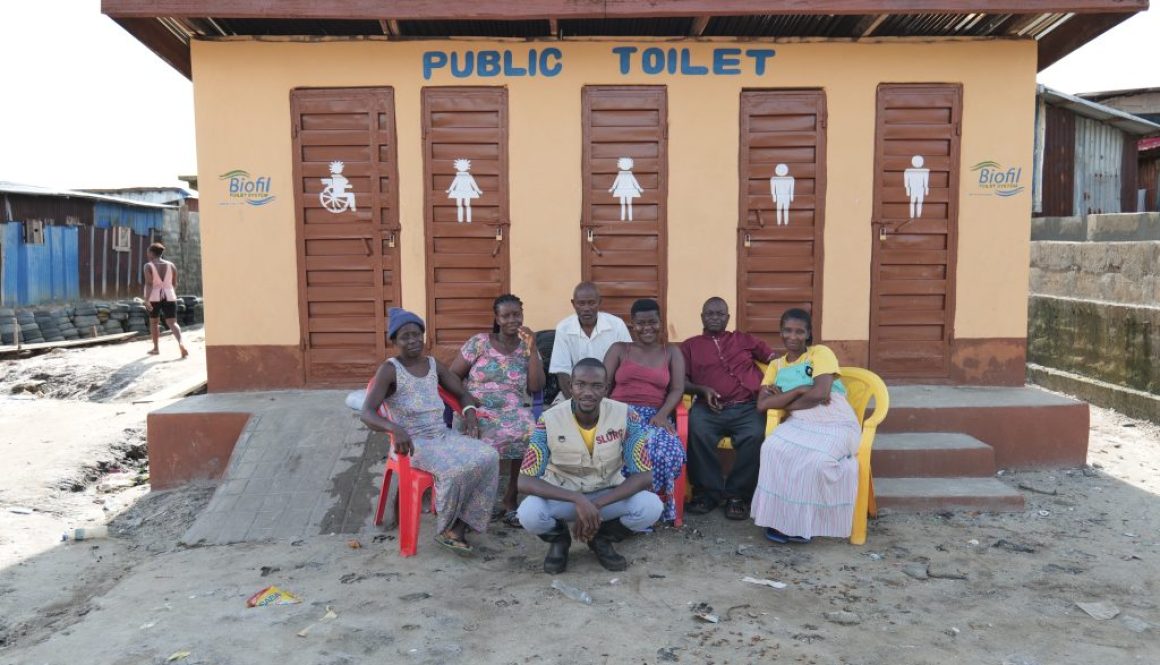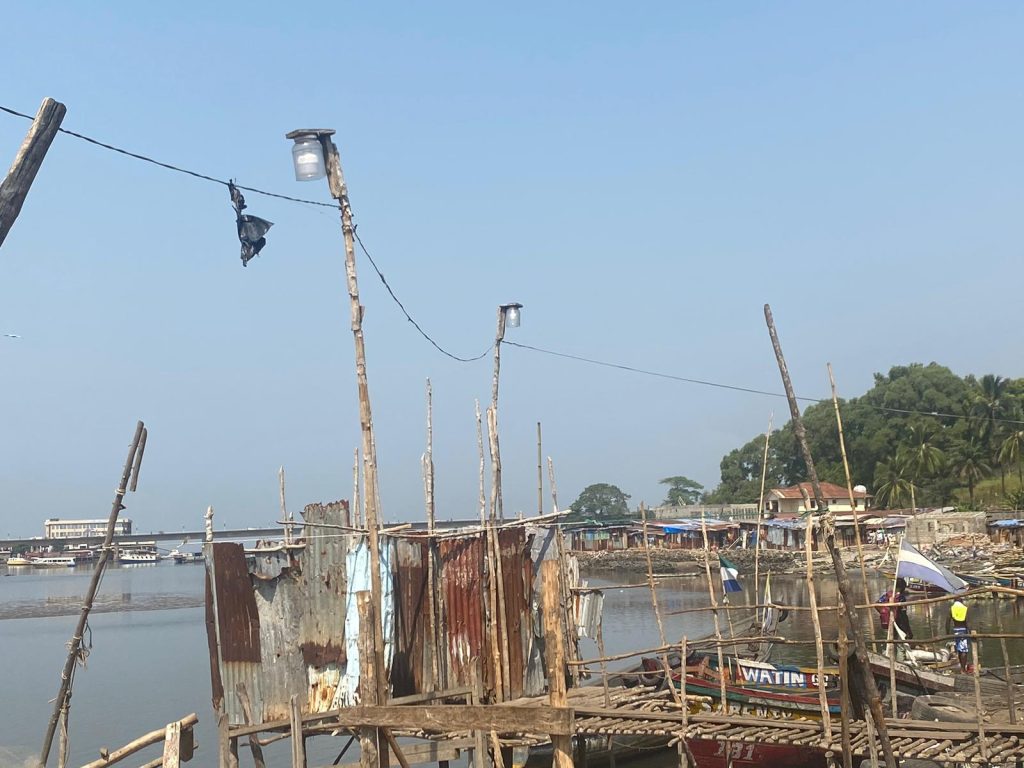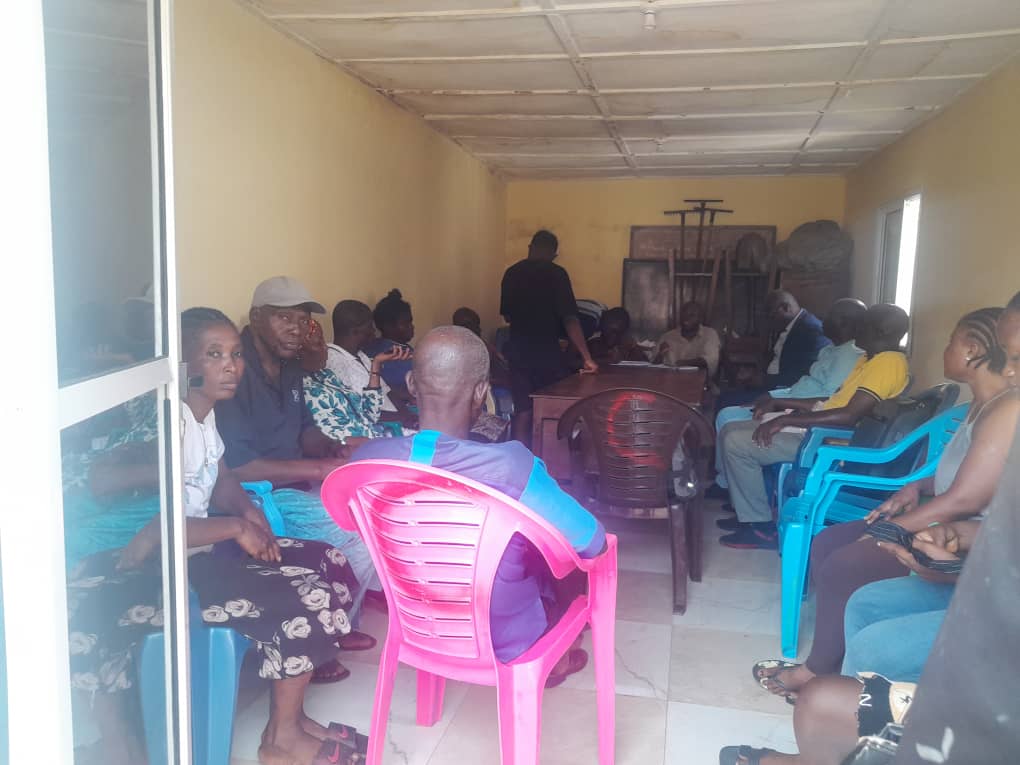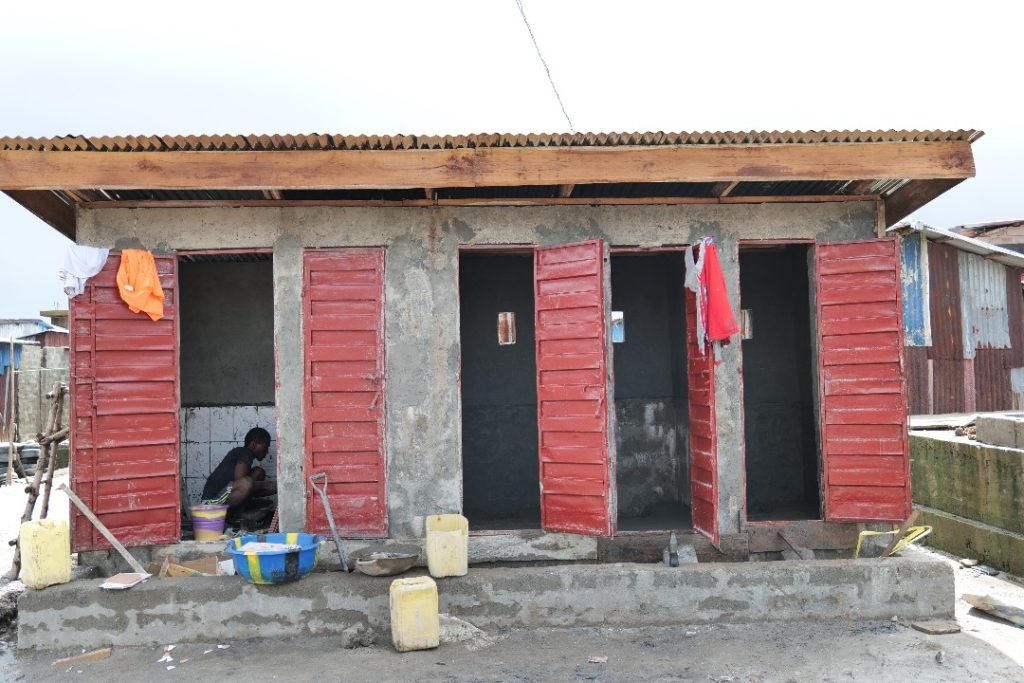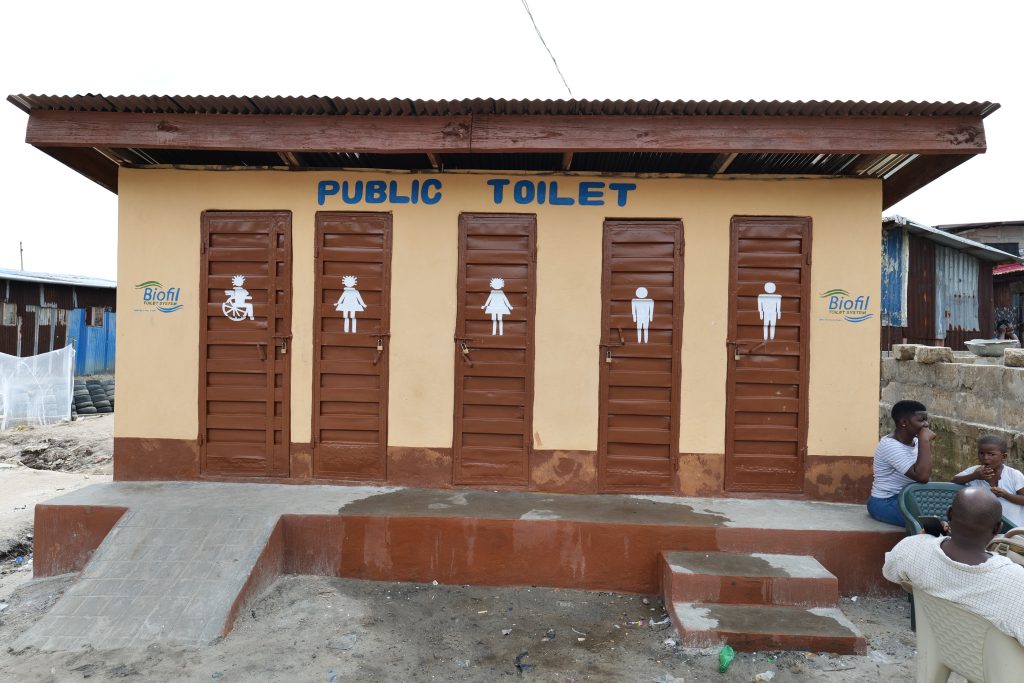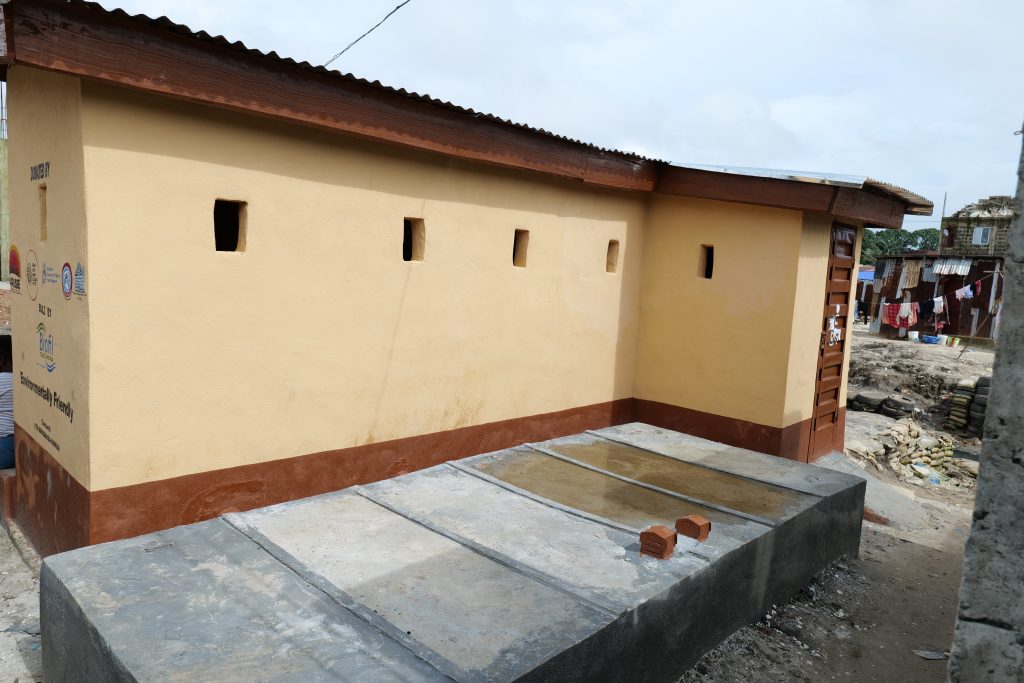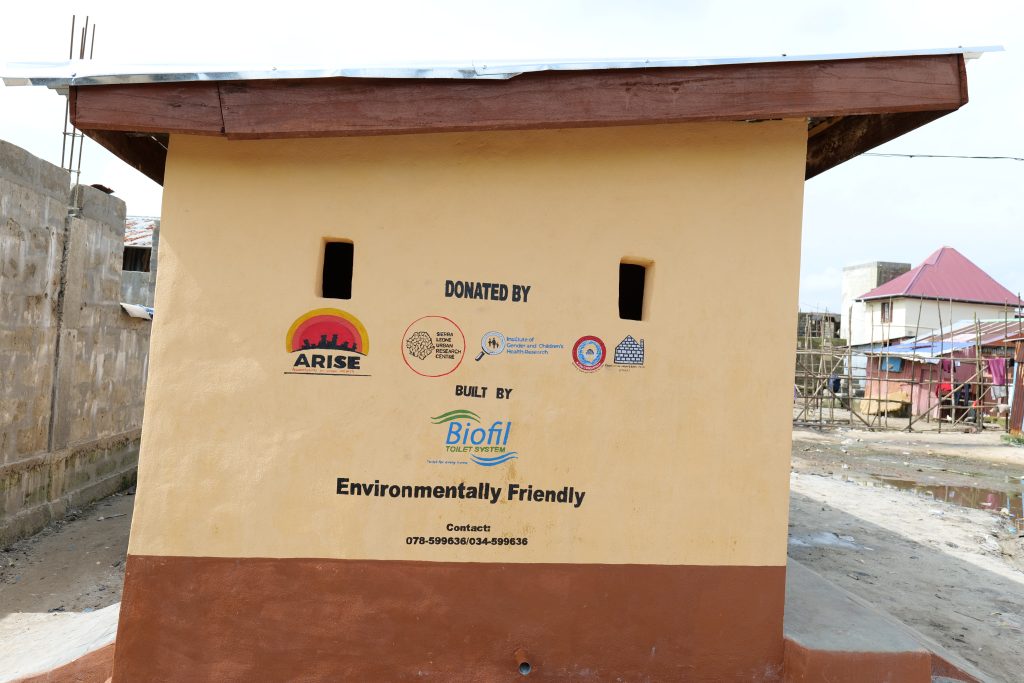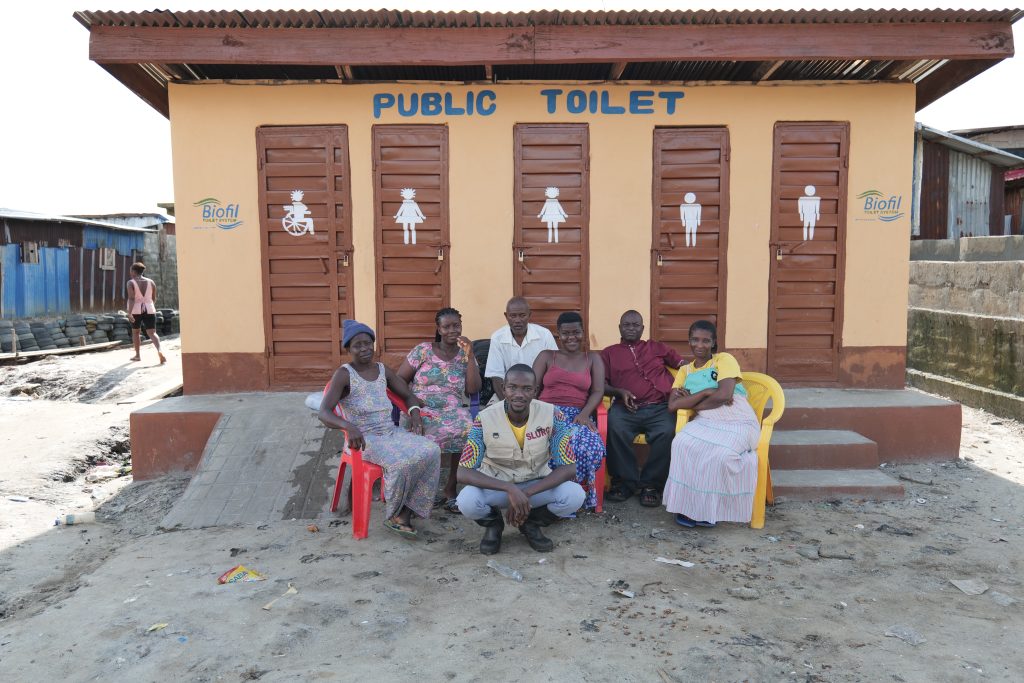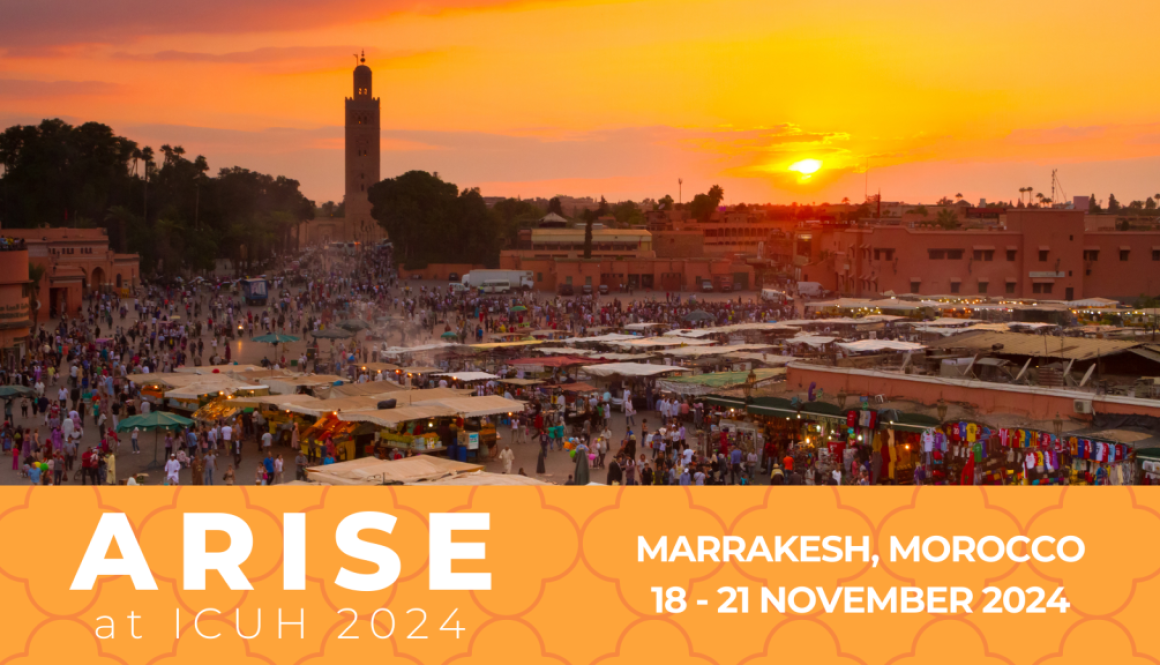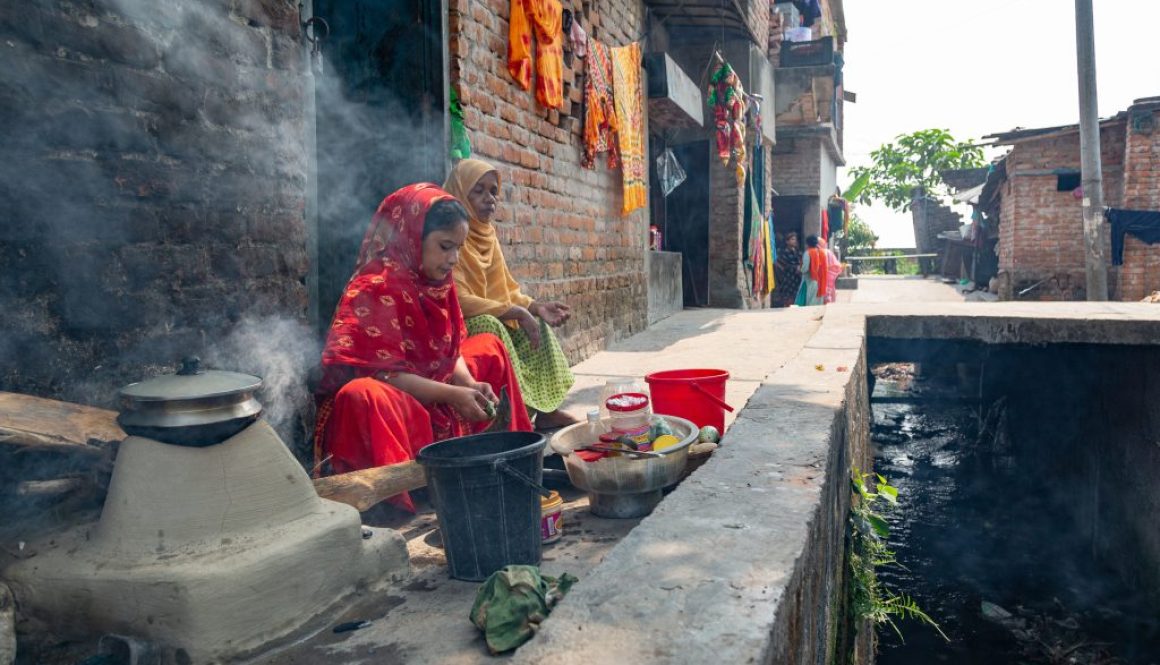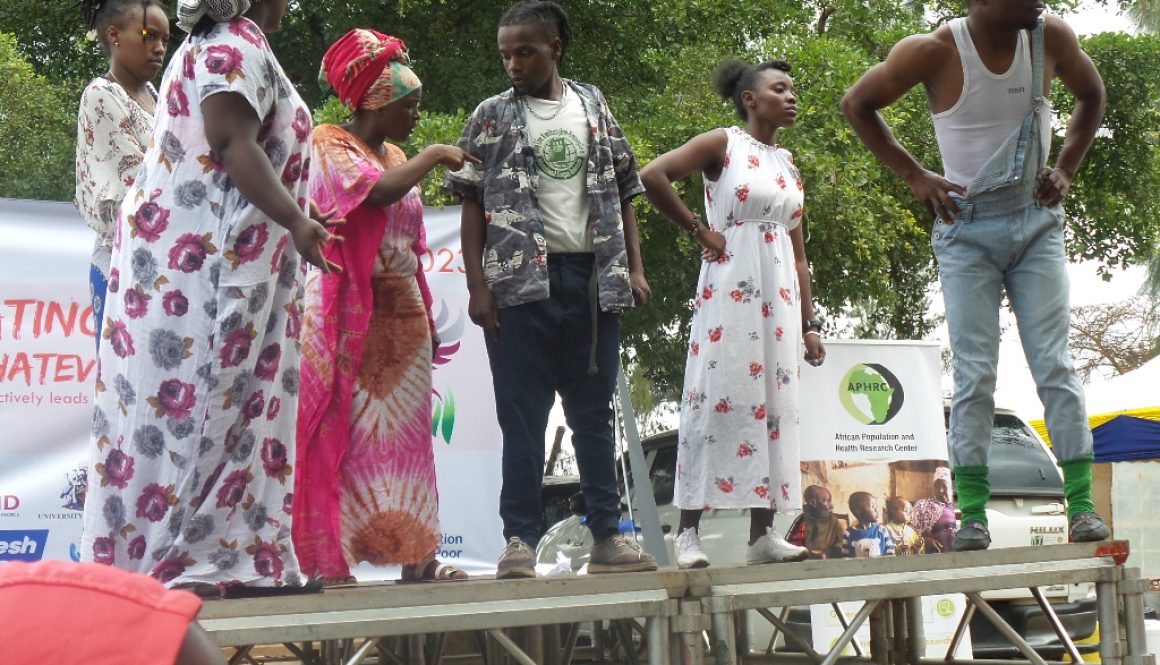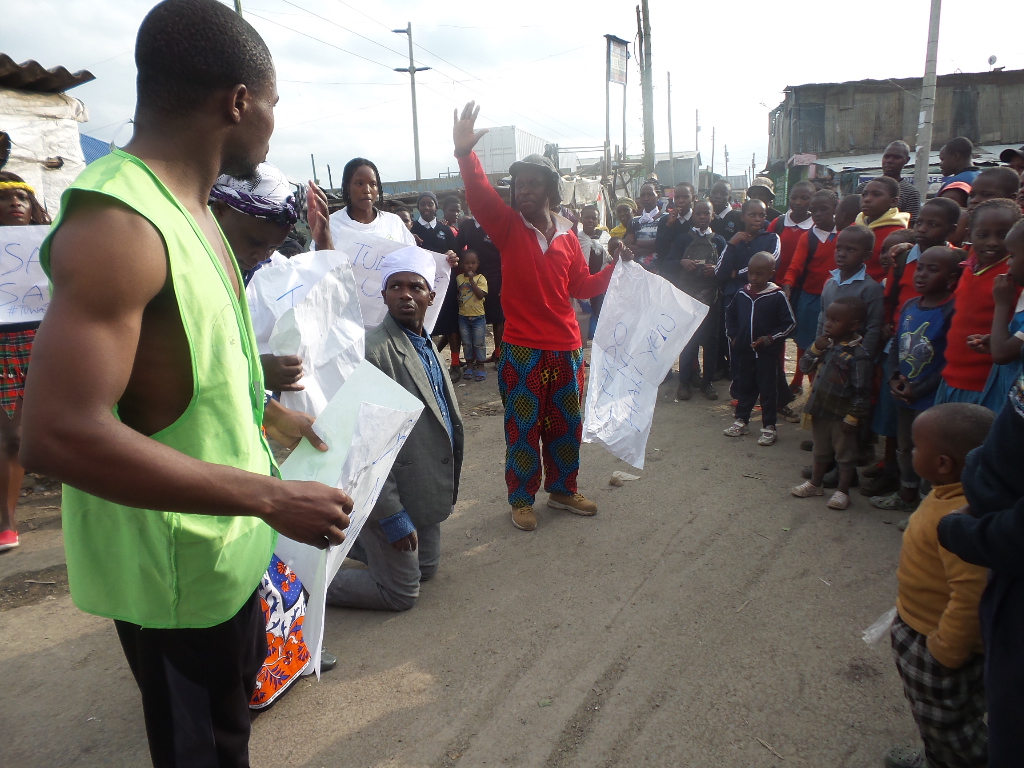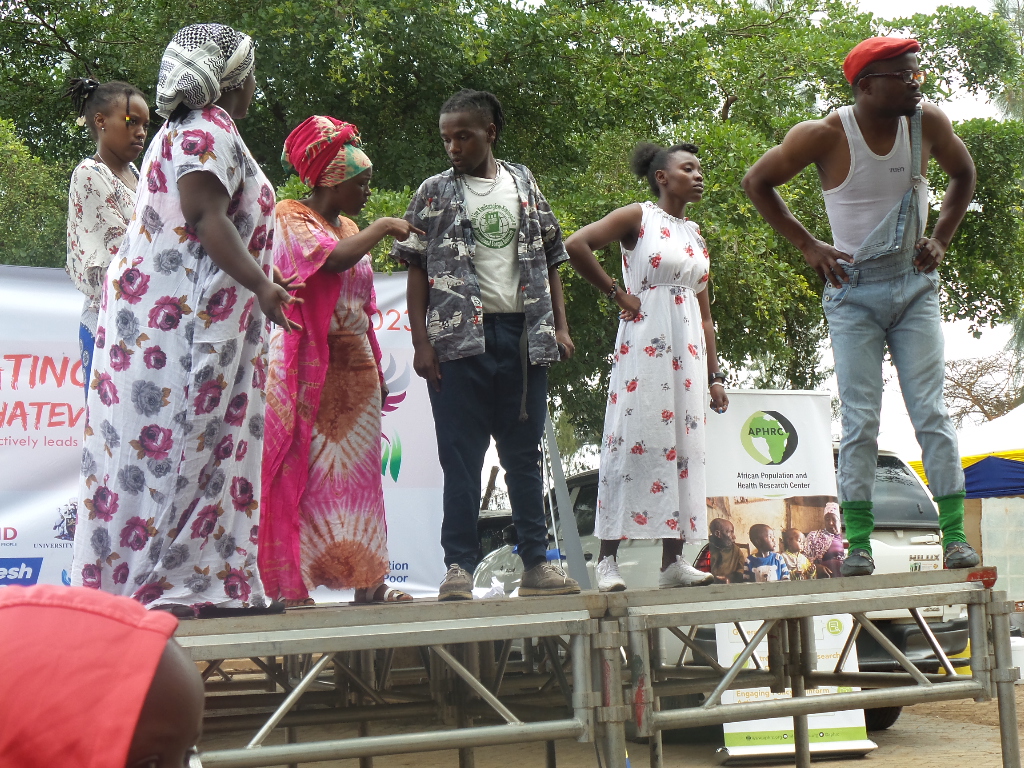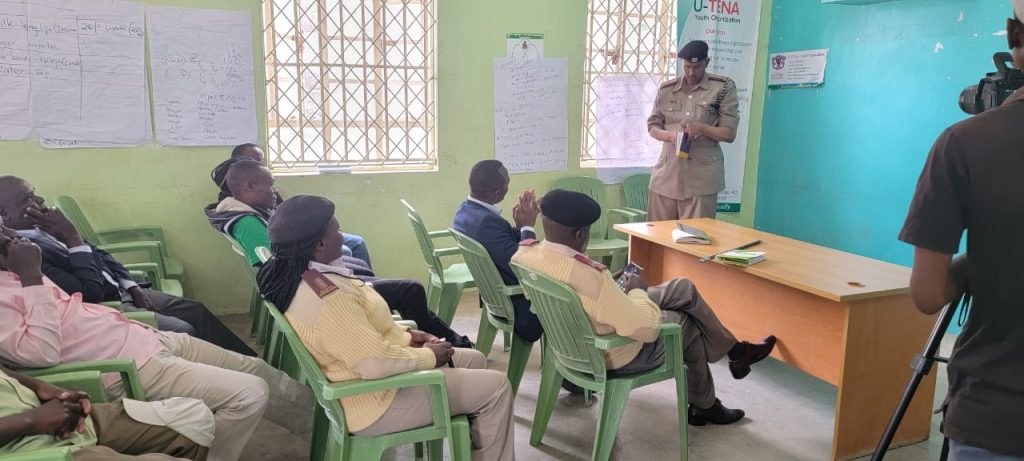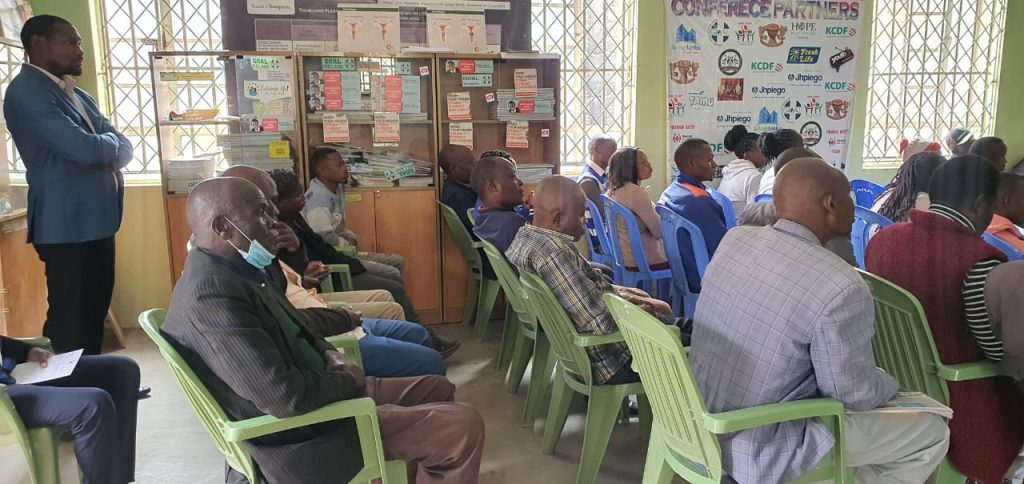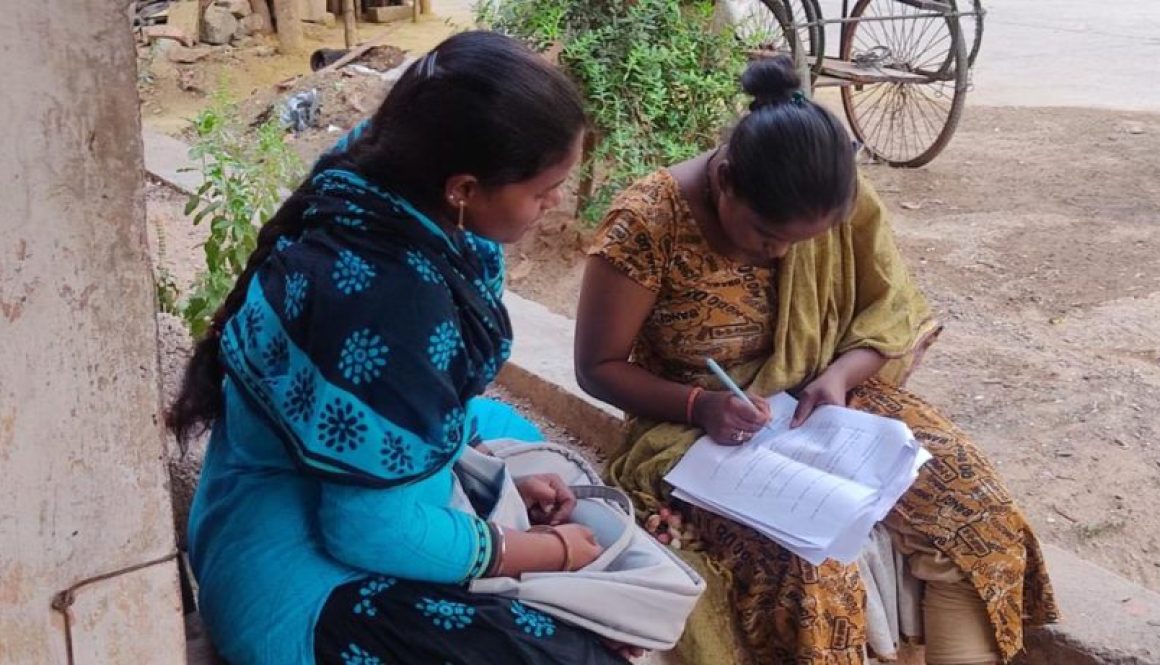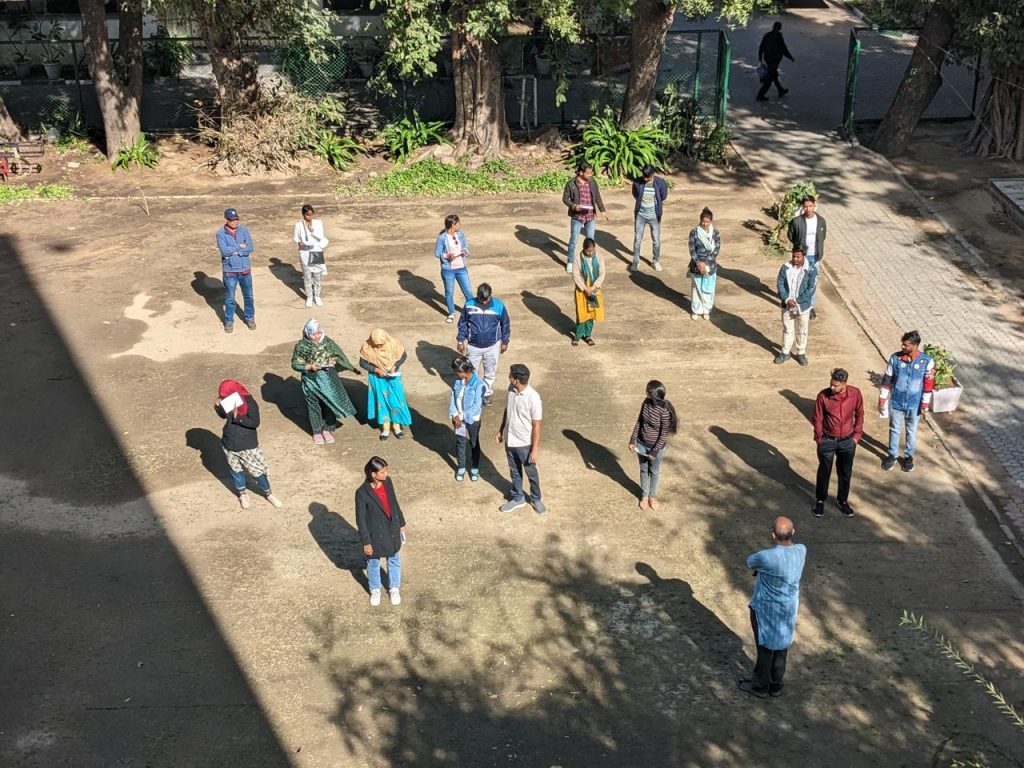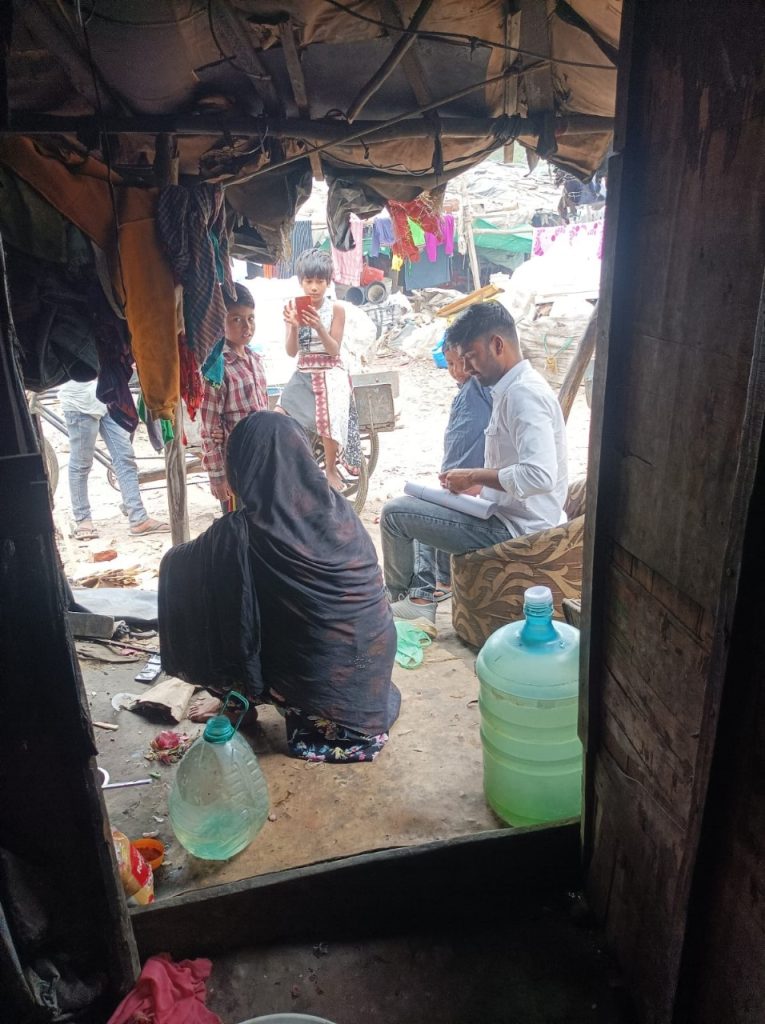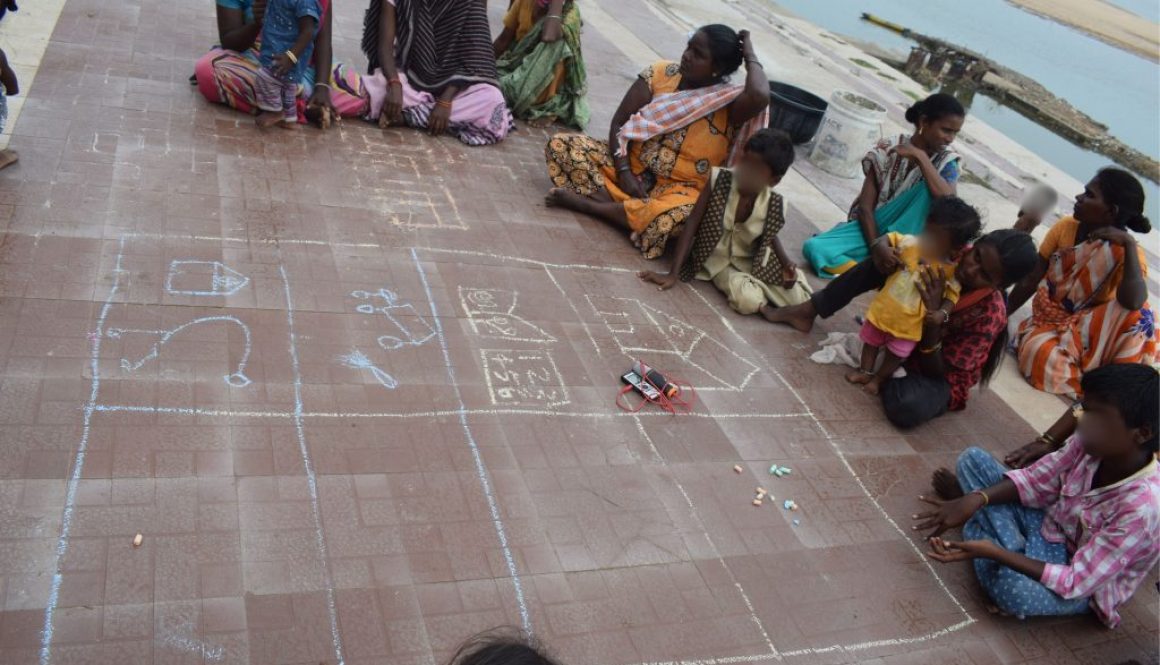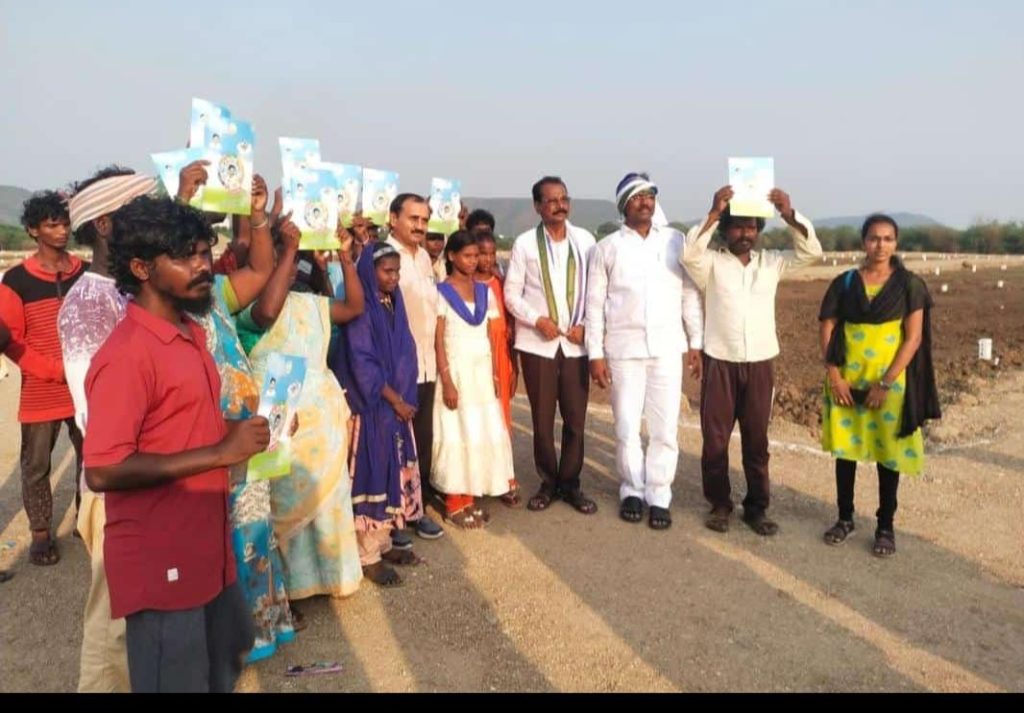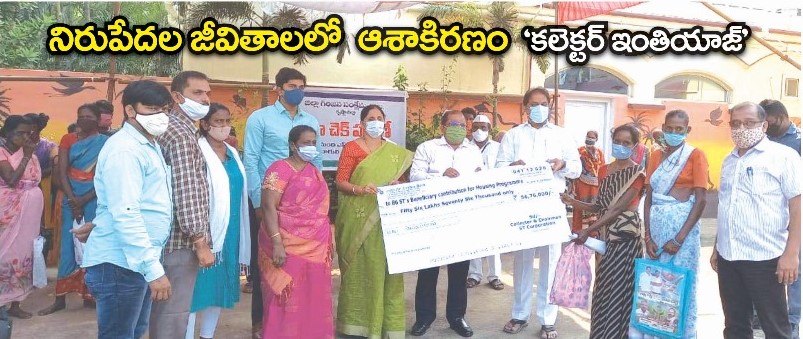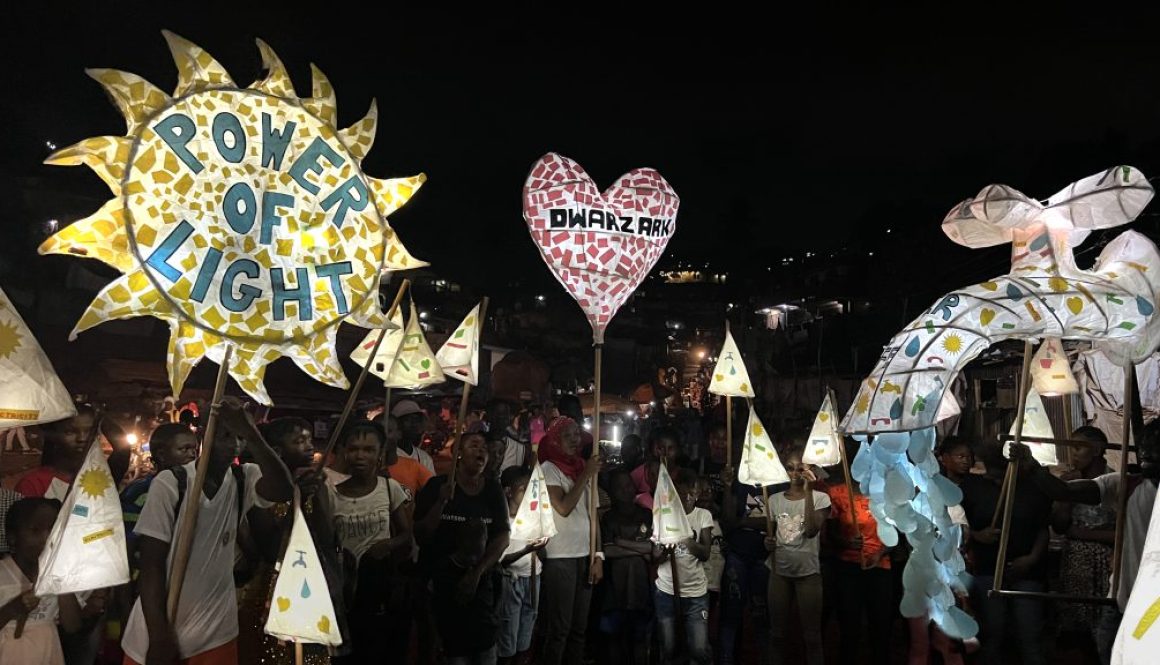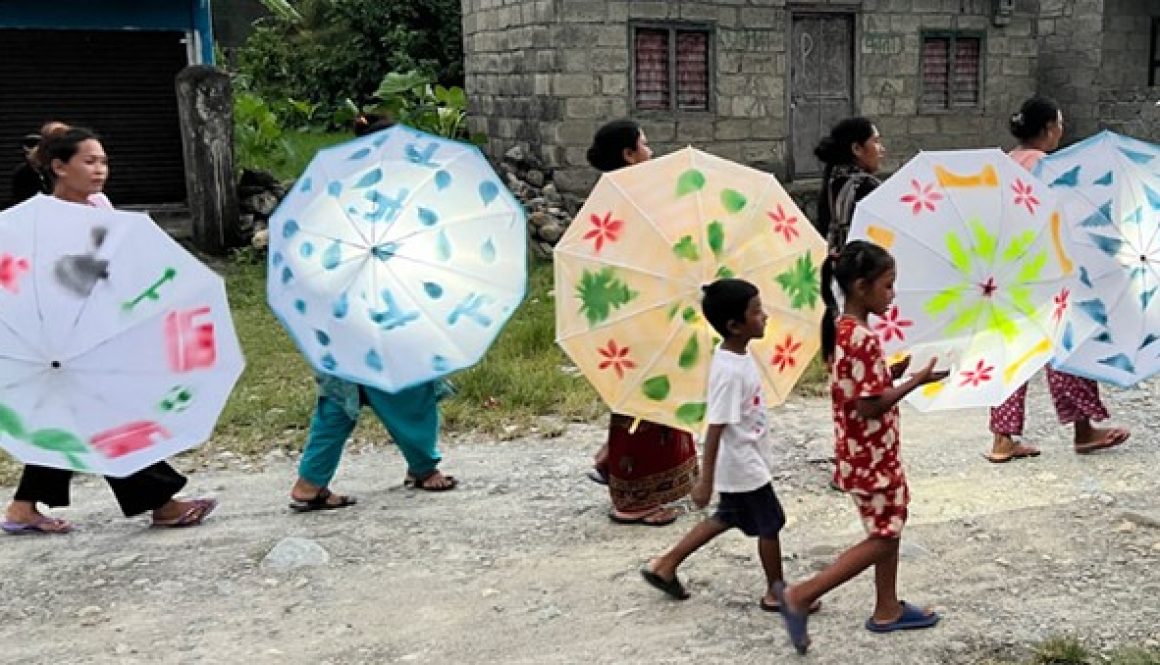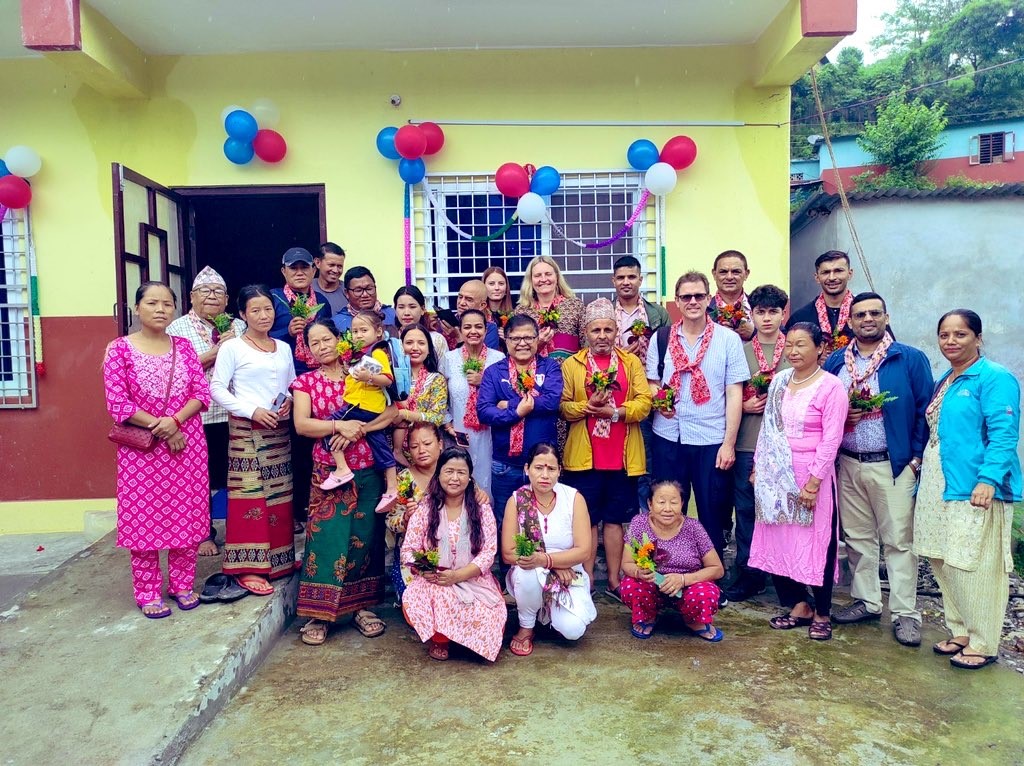Visual Essay: Scaling the physical address system to Mathare 4B settlement
This visual essay by Jacob Omondi and Sarah Ouma explores the impact of introducing a physical addressing system in Mathare 4B settlement in Nairobi, Kenya, highlighting the contributions of young people and women, and how this initiative enhances healthcare delivery. Through participatory settlement profiling and visual storytelling, we illustrate how community-led efforts and the integration of physical addresses can help tackle urban challenges and improve access to essential services.
The 4B physical addressing system
Imagine living in a community where finding your way to someone’s home feels like solving a puzzle, especially during emergencies? For many residents of informal settlements the lack of a physical address isn’t just an inconvenience, it’s a barrier to life-saving services. Recognising this challenge, SDI Kenya and Muungano wa Wanavijiji, with the support of ARISE, partnered with the community in 4B to implement a physical addressing system that has transformed how services are delivered and accessed.
This system has already brought profound change, especially for community health promoters (CHPs) and waste pickers, whose daily work depends on efficient household access. For CHPs, the system has made it easier to deliver vaccines, conduct door-to-door health visits, and respond swiftly to emergencies. Vulnerable individuals are now identified and attended to without delay, ensuring that children receive timely immunisations, chronic conditions are monitored, and emergencies like childbirth are managed effectively.
For waste pickers, the addressing system has revolutionised waste management in the settlement. Groups like the Mathare River Adoption Group now use the system to organise door-to-door waste collection, achieving near-total coverage of households. This approach has drastically reduced illegal dumping into rivers, roadsides, and drainage systems, promoting cleaner streets, better recycling practices, and a healthier environment for all residents.
The benefits extend far beyond health and waste management. Ambulances now navigate the settlement with precision, cutting down critical response times in medical emergencies. Firefighters can locate and respond to outbreaks swiftly, potentially saving lives and property. Lost children are reunited with their families more quickly, and during natural disasters like floods, rescue teams can prioritise aid for the most vulnerable areas.
By introducing this system, the settlement of 4B has moved from invisibility to inclusion, becoming a model for sustainable urban development. This project highlights how community-driven innovations can restore dignity, improve accountability, and connect informal settlements to essential services
The role of youth in transforming Mathare 4B
Health is not just about surviving, it’s about thriving. Yet for communities in informal settlements like Mathare 4B, thriving often feels like an uphill battle. With uncollected waste, floods, extreme heat, limited healthcare services, and widespread poverty, residents face challenges that directly impact their well-being. Access to quality healthcare remains a distant dream for many.
In the face of these obstacles, a new generation of changemakers is emerging. Through SDI Kenya, Muungano wa Wanavijiji, and the ARISE Hub, the youth of Mathare 4B have become central to transforming their community.
Young people are driving the effort to improve both waste management and health. These young people, full of energy and creativity, bring local knowledge and leadership to the forefront. By working alongside community health promoters and waste picker groups, they address sanitation issues that contribute to poor health.
Beyond sorting and recycling waste, young people played a key role in installing the physical addressing system, which has improved service delivery and emergency response in the area. They’ve also led efforts to raise awareness about the impact of waste management on health, creating a culture of responsibility.
This approach addresses immediate needs and also creates a foundation for long-term health and safety improvements. By reducing pollution and preventing disease, the youth are able to contribute to the creation of a healthier, safer environment for everyone in Mathare 4B. In this community, the youth aren’t just participants but architects of change.
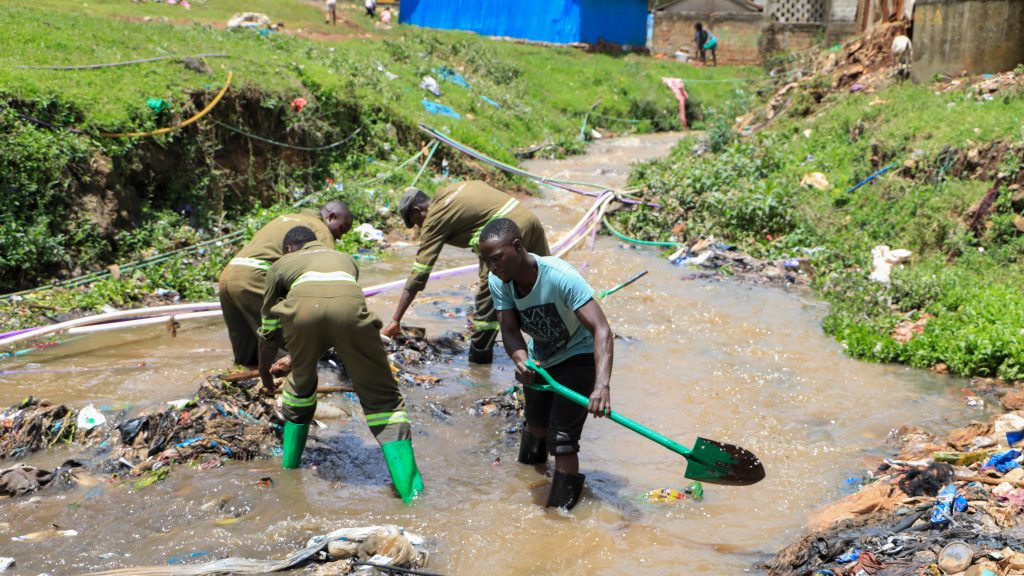
Slum Going Green and the Mathare River Adoption Group participated in a river cleanup along the Ngong River, as part of the circular economy exchange on transforming waste into a physical address system. Photo courtesy of KYCTV.
Women’s empowerment
At the core of everything SDI and Muungano wa Wanavijiji do is a deep commitment to women’s empowerment. Through ARISE, they set out to support young girls and women in Mathare and other informal settlements, helping them gain the skills and confidence to change their lives. SDI Kenya and Muungano wa Wanavijiji played a crucial role in identifying women from these settlements to undergo training, ensuring that those who needed the opportunity the most were given the chance to succeed. A powerful partnership with Buildher, an organisation that trains women to become artisans in the construction industry, brought this vision to life.
This collaboration wasn’t just about providing skills, it was also about creating real, lasting change. The young women from Mathare who joined Buildher’s programs gained hands-on experience and new opportunities to reshape their futures.
One of the most impactful outcomes was the production of the physical address number plates used in the first phase of the addressing system installation in Mathare, Kiamutisya. These women, who once faced limited opportunities, were now the ones crafting the very system that would help their community access vital services and improve daily life.Blending women’s empowerment with real, community-driven change created a ripple effect, putting women at the forefront of transformation. Working with Buildher has shown that when you invest in women, you’re not just changing their lives, but you’re lifting up the whole community.
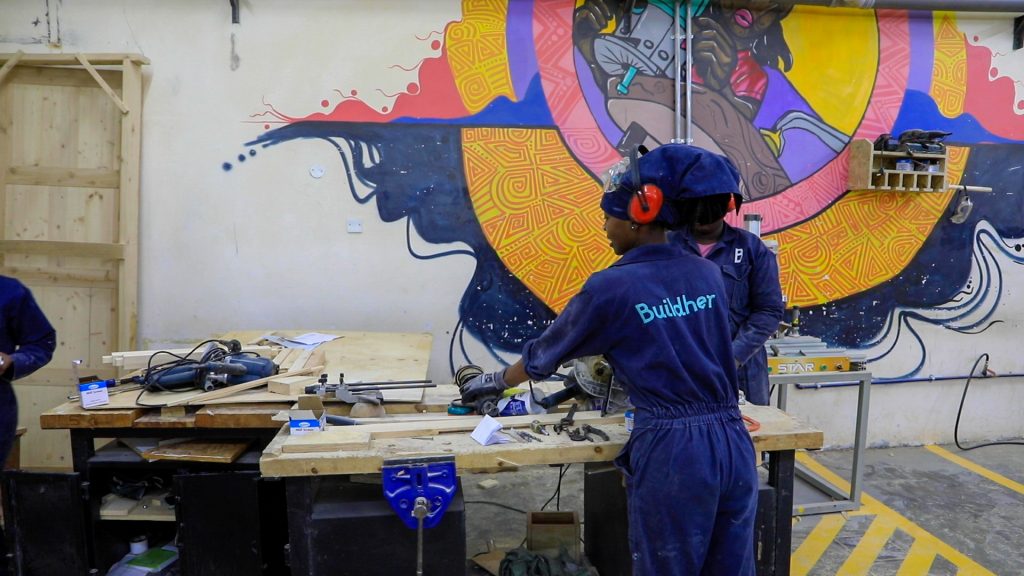
Young women from Mathare informal settlement creating a physical address system at the Buildher warehouse. Photo courtesy of KYCTV.
Youth-led research
The journey to establish the physical address system in Mathare 4B wasn’t just about maps and numbers, it was a collective effort, fueled by the energy and passion of the community. It started with a simple yet powerful task: to walk through the settlement, map every home, and gather the stories of the people who live there. It wasn’t easy, but every step was taken with the hope of creating something that would truly serve the community.
At the heart of this process were the community co-researchers, many of them young people from Mathare, who stepped up to play a vital role. They worked hand-in-hand with village elders from Nyumba Kumi, tackling resistance and helping the community embrace this new initiative. The youth brought fresh energy, new ideas, and a deep understanding of what their neighbors needed. Together with guidance and support from SDI Kenya and Muungano wa Wanavijiji, they made sure that the information gathered was accurate, detailed, and, most importantly, meaningful.
But it wasn’t just about collecting data. It was about creating something that felt like it belonged to the community. Residents, especially the youth rolled up their sleeves and got involved in designing unique addresses for each home. This wasn’t just a system on paper; it was a reflection of who they were. Everyone’s voice mattered, and by weaving in their ideas, they built a system that felt truly theirs, one that fit their needs and reflected their identity. It was a process that sparked a sense of pride, ownership, and connection among everyone involved.
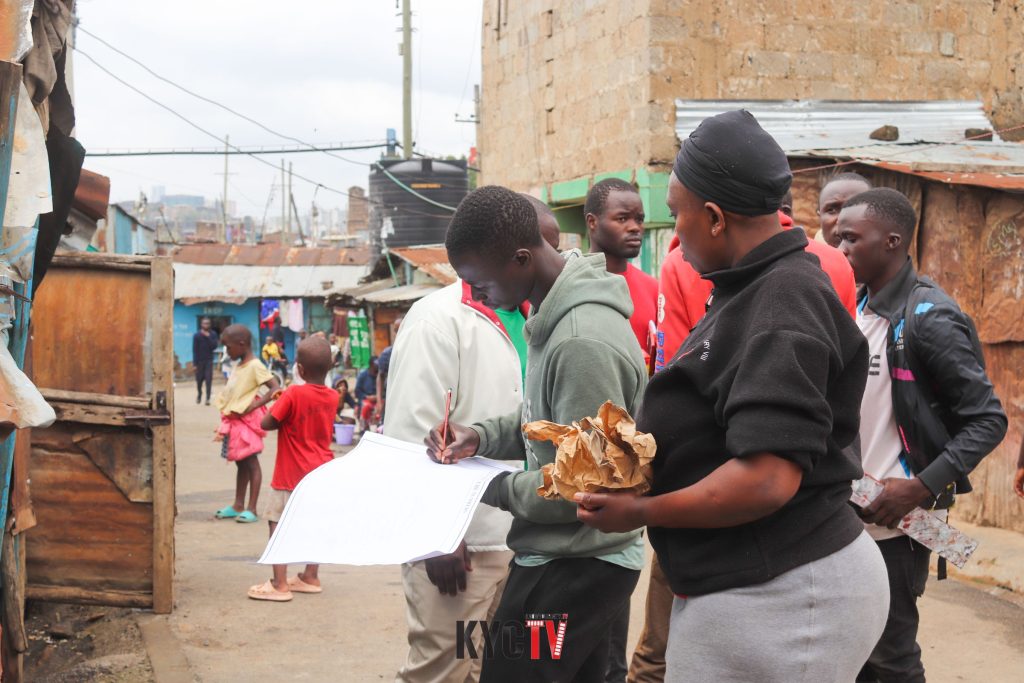
Youth conducting a profiling exercise in their settlement, to count the total number of households.
Peer learning
Peer learning is so powerful because when communities come together, they share ideas, learn from each other, and find innovative solutions to their challenges. This approach was brought to life when groups actively involved in waste management from Mathare had the chance to visit nearby settlement Kibera to learn how to tackle one of the most pressing issues in informal settlements: waste and its impact on health.
The exchange between the youth groups in Mathare and Kibera was more than just an opportunity to share knowledge, it was a transformative experience. The Mathare team observed firsthand how effective waste segregation, recycling, and composting practices can change the game when it comes to reducing health risks. One of the standout lessons was learning about the Black Soldier Fly method for managing organic waste, something that had a powerful impact on how they thought about waste as a resource, not just a problem.
But the lessons went beyond waste management. The Mathare group saw how Kibera’s community came together for more than just cleaning up the environment, they observed the power of group savings initiatives and how collective action could spark economic empowerment alongside environmental sustainability. This was more than just about waste; it was about creating a healthier, more resilient community.
With these invaluable lessons in hand, the Mathare team went home equipped with new techniques, and fresh mindset on how collaboration, innovation, and community-driven efforts can tackle the challenges that informal settlements face every day, ready to bring those ideas home and continue the work of transforming their own community.
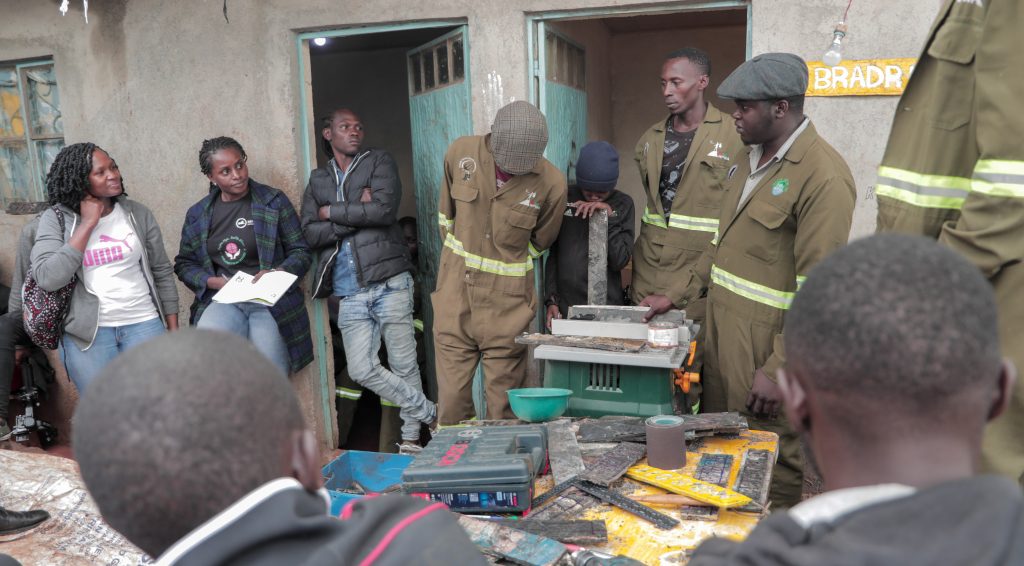
Peer to peer exchange between Slum Going Green Kibera and youth from Mathare. Picture courtsey of KYCTV.
Launch of the physical addressing system
In November 2022, the residents of Mathare 4B gathered at Upendo Grounds to celebrate a milestone that would forever change their community, the launch of their new physical addressing system. This wasn’t just the unveiling of a project, it was the culmination of hard work, collaboration, and a shared dream to solve long-standing health challenges in the settlement. It was a moment that demonstrated the incredible power of community involvement and collective action.
The event was alive with excitement and energy, with key stakeholders, Muungano wa Wanavijiji, SDI Kenya, the Nairobi County Chief, the area member of the County Assembly, the hospital ward representative, and the area member of Parliament representative, all coming together to witness the success of a project that would bring tangible benefits to the residents of Mathare 4B.
This launch was more than just a ribbon-cutting ceremony. It was a turning point in Mathare 4B’s journey toward better infrastructure, improved service delivery, and more organised community life. The physical addressing system will now help with navigating healthcare services, from reaching patients during emergencies to facilitating door-to-door health education and vaccination campaigns. It’s a simple yet powerful tool that will make a real difference in the everyday lives of residents.
For the people of Mathare 4B, this launch was a testament to what can be achieved when a community comes together, partners with others, and works toward common goals. It wasn’t just a project, it was a victory for the whole community.
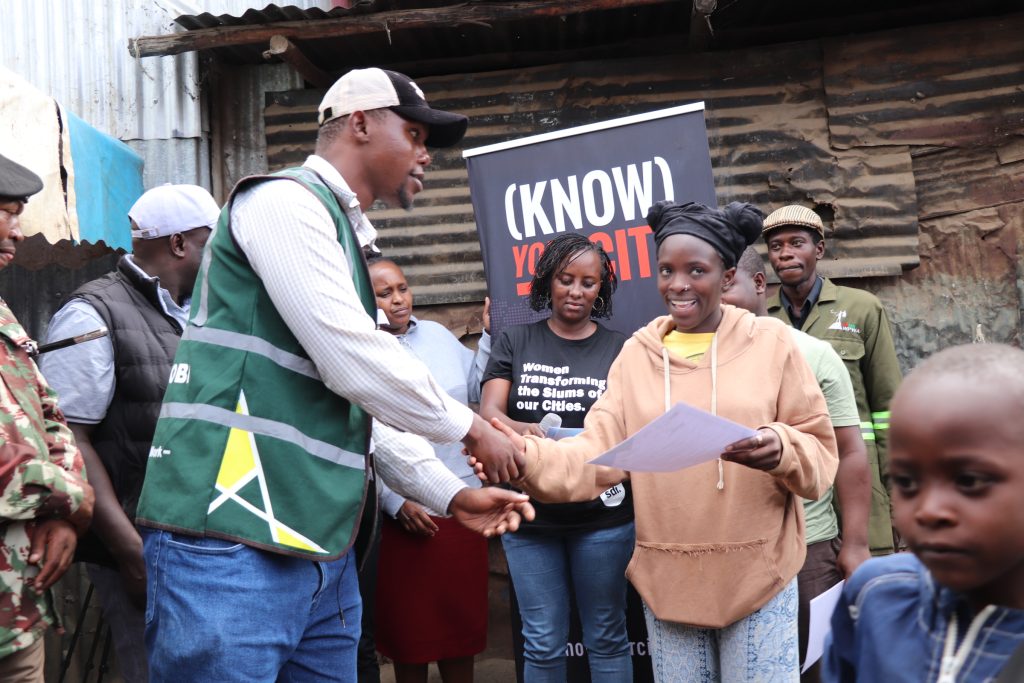
The Environmental Officer from Nairobi County Government recognises the young people who participated in the creation of the physical address system during the launch in Mathare 4B.
The different colors on the address plates—blue for sanitation facilities, yellow for churches, gray for social amenities, red for businesses, and maroon for residential houses—make it easier for people to navigate and access essential services.
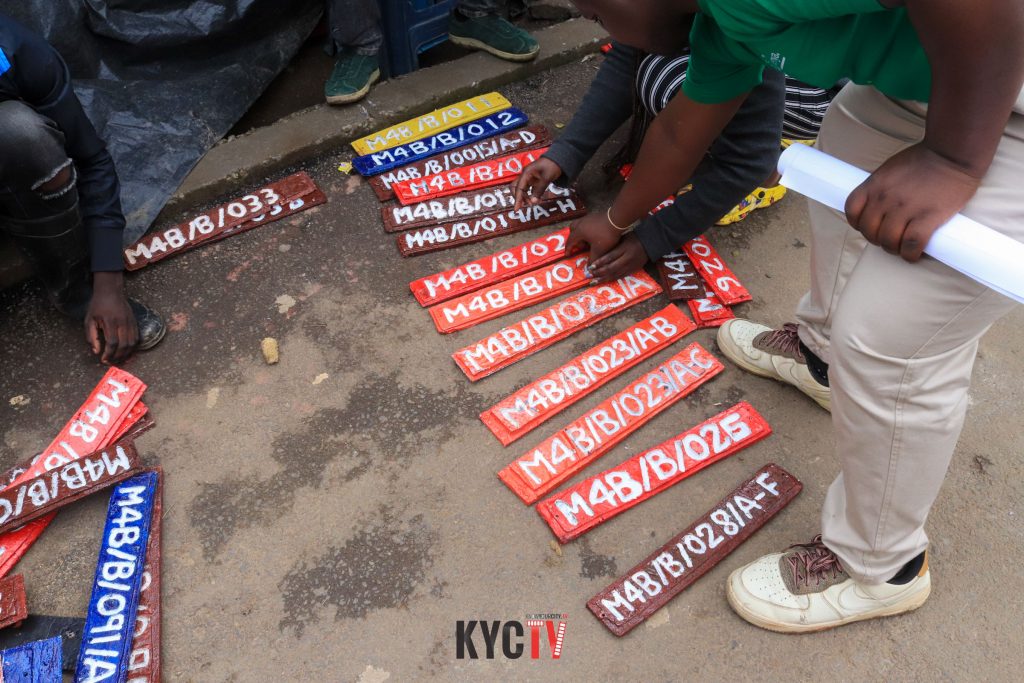
Young people organise the physical address system just before the installation exercise.
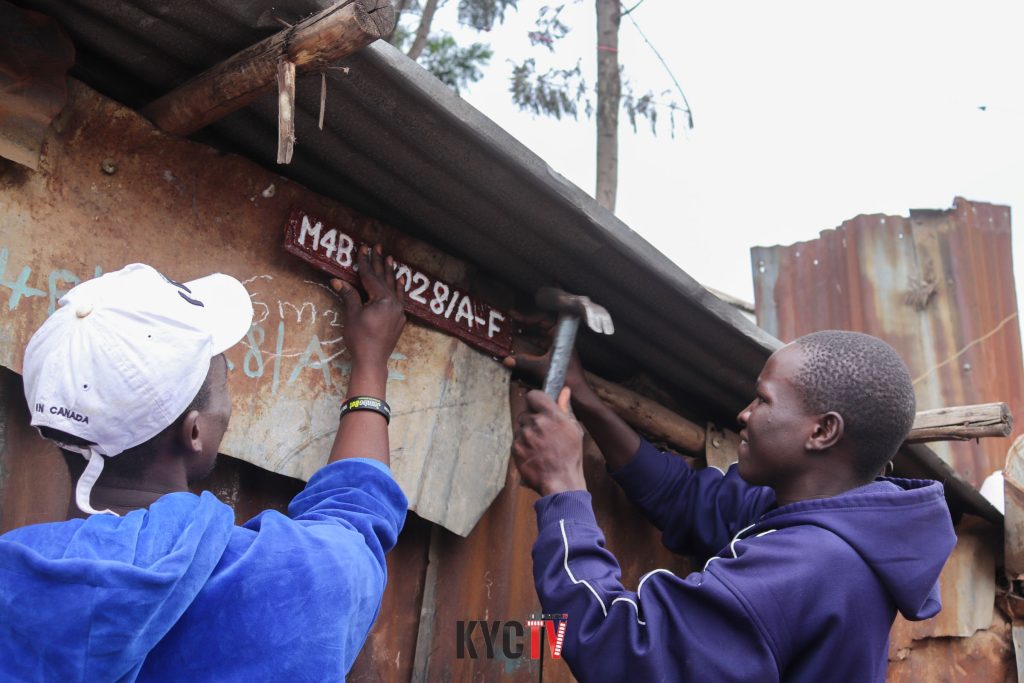
Youth installing the physical address in a structure in Mathare 4B. Brown is the colour for residential structures.
About SDI Kenya and Muungano wa Wanavijiji
SDI Kenya is a non-profit organisation that aims to address urban poverty. To fulfill their mandate, SDI Kenya provides technical support to Muungano wa Wanavijiji, the largest national movement of slum dwellers in Kenya.
Founded in 1996, Muungano wa Wanavijiji is a movement that brings together groups from urban slums and other poor communities to advocate for both policy and physical changes to inadequate and challenging living conditions, organised around advocacy and savings, climate change mitigation and adaptation. SDI Kenya and Muungano wa Wanavijiji’s vision is to create inclusive cities where low-income communities have access to adequate housing and services, enabling them to live with dignity. As an affiliate of Slum Dwellers International (SDI), a global network operating in over 20 countries across Africa, Asia, and Latin America, SDI Kenya mobilizes over 28,000 of the most vulnerable women, men, and youth. These communities are brought together through dynamic savings schemes, creating a network at the settlement, city, and national levels. This network aims to drive a collective, bottom-up change agenda for inclusive and resilient cities, influencing global development agendas.
